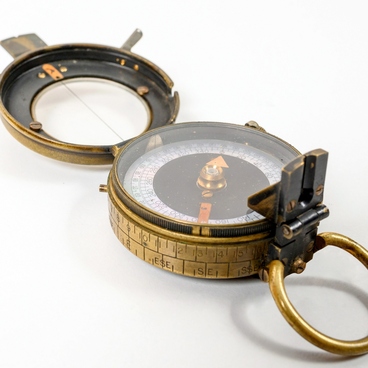The Timofey Yevseev National Museum of the Republic of Mari El houses a men’s suit made of white cotton fabric. It consists of trousers, a jacket with a belt and an embroidered shirt. This suit belonged to the famous Mari journalist Pyotr Ivanov, known under the pseudonym Shorsky.
Pyotr Ivanov was born on December 5, 1913, in the village of Shorsola, Irmuchashskaya volost, Urzhumsky county, Vyatka province, which is Kuzhenersky district of Mari El nowadays. His parents were unwealthy peasants. In 1931, the 18-year-old Komsomol member Ivanov, who had just graduated from school, founded a collective farm in his native village. Ever since he was young, he wrote articles for local newspapers, and in the 1930s, he got a job at the editorial office of the regional publishing house “The Young Communist” (“Rveze kommunar”). The journalist took the pseudonym Shorsky after the name of his village.
On October 21, 1937, Pyotr Shorsky was arrested on a false denunciation as an “enemy of Soviet power” and a “bourgeois nationalist”. On November 10, that same year, he was sentenced to 10 years of hard labor and sent to the Tayshet camp in the Irkutsk region.
Two years later, in 1939, Lavrentiy Beria became head of the People’s Commissariat of Internal Affairs. He initiated the movement to “restore socialist legality” — Pyotr Shorsky was found innocent, released, and allowed to return to his native Mari Autonomous Soviet Socialist Republic.
In 1943, Shorsky was accepted into the All-Union Communist Party of Bolsheviks, as the CPSU was called at the time. From that time to the end of his life, the journalist was engaged in public and party activities. In the 1940s –1950s, Shorsky worked for the big Mari El republic newspapers “Mari Kommuna”, “Mariyskaya Pravda”, as well as for the local newspapers “Kolkhoznaya Pravda”, “Kommunar”, “Socialism verch” (“For Socialism”). In 1957, he was promoted to the director of the Ronginsky stone quarry, where he later worked as a labor and wage engineer.
Pyotr Shorsky was known not only as a journalist but also as a writer. His novel “Unforgettable Friend” was published in 1962. In 2013, his daughter Zinaida Ivanova published the book “The Story of One Life” in 2013, which, in addition to biographical articles, memoirs, and photos, included an unpublished manuscript by Shorsky — “History of the Ronga Village”.
Pyotr Ivanov was born on December 5, 1913, in the village of Shorsola, Irmuchashskaya volost, Urzhumsky county, Vyatka province, which is Kuzhenersky district of Mari El nowadays. His parents were unwealthy peasants. In 1931, the 18-year-old Komsomol member Ivanov, who had just graduated from school, founded a collective farm in his native village. Ever since he was young, he wrote articles for local newspapers, and in the 1930s, he got a job at the editorial office of the regional publishing house “The Young Communist” (“Rveze kommunar”). The journalist took the pseudonym Shorsky after the name of his village.
On October 21, 1937, Pyotr Shorsky was arrested on a false denunciation as an “enemy of Soviet power” and a “bourgeois nationalist”. On November 10, that same year, he was sentenced to 10 years of hard labor and sent to the Tayshet camp in the Irkutsk region.
Two years later, in 1939, Lavrentiy Beria became head of the People’s Commissariat of Internal Affairs. He initiated the movement to “restore socialist legality” — Pyotr Shorsky was found innocent, released, and allowed to return to his native Mari Autonomous Soviet Socialist Republic.
In 1943, Shorsky was accepted into the All-Union Communist Party of Bolsheviks, as the CPSU was called at the time. From that time to the end of his life, the journalist was engaged in public and party activities. In the 1940s –1950s, Shorsky worked for the big Mari El republic newspapers “Mari Kommuna”, “Mariyskaya Pravda”, as well as for the local newspapers “Kolkhoznaya Pravda”, “Kommunar”, “Socialism verch” (“For Socialism”). In 1957, he was promoted to the director of the Ronginsky stone quarry, where he later worked as a labor and wage engineer.
Pyotr Shorsky was known not only as a journalist but also as a writer. His novel “Unforgettable Friend” was published in 1962. In 2013, his daughter Zinaida Ivanova published the book “The Story of One Life” in 2013, which, in addition to biographical articles, memoirs, and photos, included an unpublished manuscript by Shorsky — “History of the Ronga Village”.



